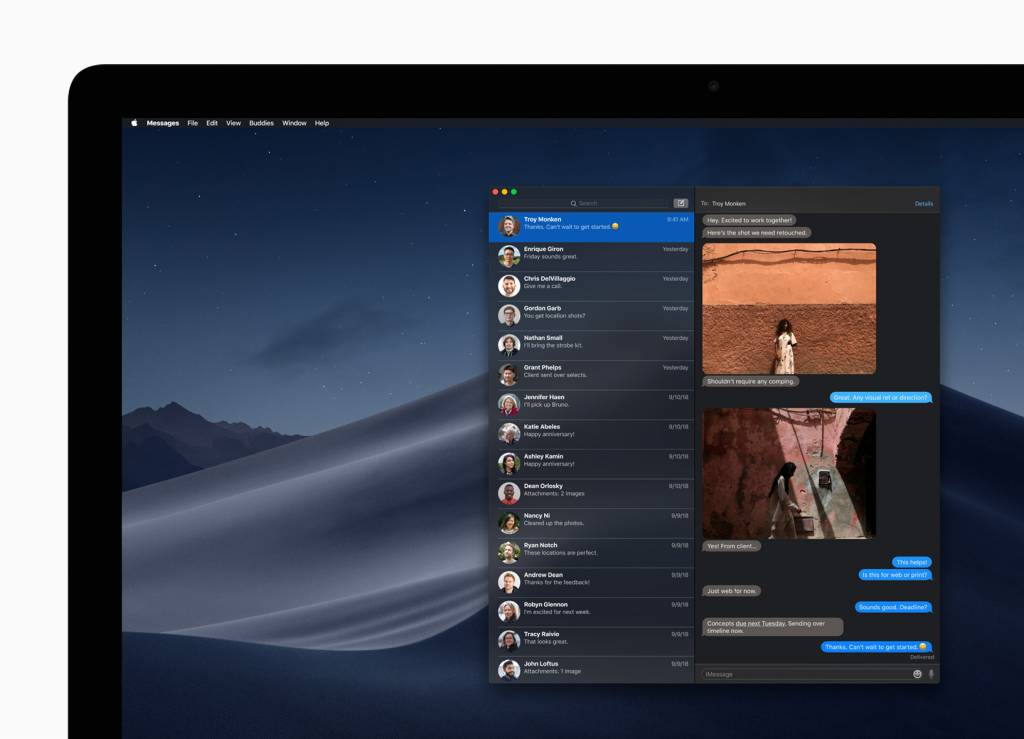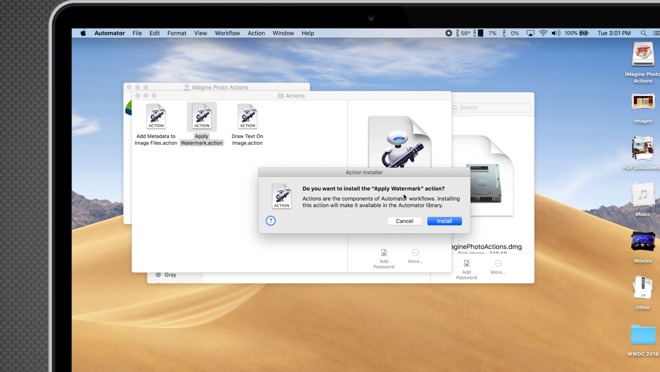

At the top right, make sure you select that the services receives selected ‘Files or folders’ in ‘Finder.App’.Quick Action ( File->new->Quick Action) under MacOS Mojave.Service ( File->new->Service) under MacOS Sierra.Using Applescript and AutomatorĪfter searching around the internet for different options, I found out that using Applescript together with Automator is the easiest way to do this. I just want to right click, and “Share”, or similar.Īpparently Outlook 2016 (Office 365) does not ship anymore with the handy Automater scripts that used to accompany Outlook. I know you can drag the selected file(s) to the Outlook icon in the Dock.
#Automator mac os mojave pdf
The final assembled workflow will appear as shown below.I often want to attach files from Finder to a new e-mail, and I use Outlook from Office 365 on Mac OS Sierra (and now updated for MacOS Mojave). Automator This software-robot program is described in a free downloadable PDF appendix to this chapter, Automator & AppleScript.You can download it from. You can see an example of what your image names will look like in the example at the bottom of the Rename pane. Here we’ve used “-700px” to indicate the file’s dimensions and avoid filename conflicts. This will be added at the end of the filename but before the extension. In the “Add” dialog box, provide a suffix. Select “Files & Folders” again, then double-click “Rename Finder Items.” Within this box select “Add Text” from the dropdown. Once the action is in place, Select “To Size (pixels)” from the dropdown and type in the desire pixel dimensions. Click “Don’t Add” to avoid adding an unnecessary copying action. We’ve already duplicated the files, so that’s no concern for us. Select “Photos,” and then double-click “Scale Images.” You’ll see a alert pop up, warning you that this will change the files. MacOS Mojave: Screenshots get a home Taking screenshots on the Mac isn’t remotely new, but in Mojave. In the WorkFlow input selection dropdown menu, choose No Input.

Select Contextual Workflow and click Choose.


Double-click “Duplicate Finder Items” from the adjacent pane.Ģ. A few minutes of tinkering with Automator workflows can save you hours of time in the long run. To get started, open the Automator app, and click New Document. Select “Files & Folders” from the left-most pane. With our bearings set, we can begin adding actions to our empty workflow.ġ.
#Automator mac os mojave how to
In this tutorial we are going to show you how to create and use Quick Actions in macOS Mojave.Īlso read: How to Get Mojave Dynamic Desktop on Your Mac Now Opening Automator


 0 kommentar(er)
0 kommentar(er)
